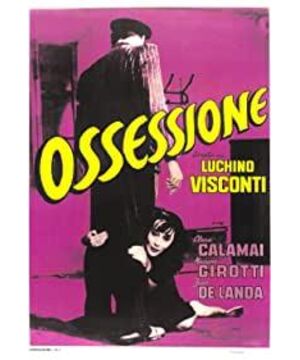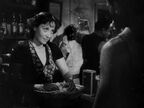A veritable sinking, sinking into the parasitism and struggle of desire.
Nietzsche said in "Beyond Good and Evil" that "people ultimately love their own desires, not the object of their desires". Gino and Giovana, Gino and Anita are both parasitized by desire, and they also regard each other as the object of parasitic desire. On the human level, the undercurrent fighting caused by this interaction must be without a winner. Annie who got out as soon as possible Towers (though not active) are also lucky.
The film will focus on the choice of characters, which is also the area where the tone is displayed.
Or slow zooming on the face/environment, such as choosing front and back to play Keno's stagnant expression and the dark door when Giovanna sings, and cooperate with slow zooming; or angular indoor hard light, also through The heavy use of Rembrandt light when the character is depressed or serious suggests the importance of his next choice.
If the former endows the environment with the mood of the present space, the equally elegant interior mirror movement and the selection of the subjects indicate the direction of the story. From the very beginning, Keno gets off the truck, bypasses the gas station and goes to the house. The plane rises and crosses over The gas station expands the scene at the same time to connect the relationship between Keno and this two-story building, which will be evident to the director's awareness.
And the thunderous movement of the mirror on the ground: when Gino and Giovana had an affair, the subject changed from a mirror to a wardrobe and opened the wardrobe to shoot Bragana's clothes, and even created a sense of horror in daily life.
In the two dinner scenes, the first time is Bragana, Gino, and Giovanna. The camera is moving, but the foreground is still the couple, Bu and Joe, and the second time, only Joe is left. Vana is alone, eating in a daze after the killing and partying, and the camera at this time is a fixed medium position like Giovanna is staring at.
In addition, Gino and Giovana both looked at each other at least once in different scenes, facing the camera sideways in the same frame, and their bodies stood at a distance of about one step. Judging from the story of terrified love, it seems that the film is deliberately maintaining Some kind of dangerous ambiguity. The point of embodying the danger through the position of the characters is carried forward in Bergman's film, the later two-person front and side positions in the same frame.
Returning to the text, although most of the characters in the film are not very wealthy, Gino and Giovana have different origins. One actively fell into poverty, while the other passively fell into it and struggled to break free. Their class differences may not be reflected in the material, but in the tolerance of ideas, and the orientation it leads to thinking, the cognition of life - the latter is the main characteristic of distinguishing class, but also distinguishing gender - Joe Isn't Vana's leap path exactly the unified model imposed on most women in China today, marrying a rich man, and Giovana's repeated reluctance to let go of her existing life means that, over the years, from class to self, from being imposed to Internalized recognition.
Concepts distinguish between classes, which is a characteristic of postmodern society. 1943's "The Sinking" expresses this through the closeness and distance between men and women, which is really ahead of its time. Not only did Giovana turn around and hug An An during the runaway, but also Gino listened to the voice of the conch when Giovana was terrified for the future of the two. Keno can find joy in a poor environment and believes that he can continue to find assistance to maintain his minimum living. But Giovanna had lived such a life since she was a child, and the fear of falling class overshadowed the possible joy of life, and it is also very likely that she thought that the kind of life she imagined was qualified to be called life.
Perhaps their own imaginations and desires are just some kind of symptoms caused by modern life. However, when one side of the lovers desires the other party to change their life style for themselves, and the other party is willing to do so for love, the desire is parasitic and the truth is swallowed up. In fact, there is no need to add the crime of the dove occupying the magpie's nest, the fateful misfortune has already happened.
View more about Obsession reviews







